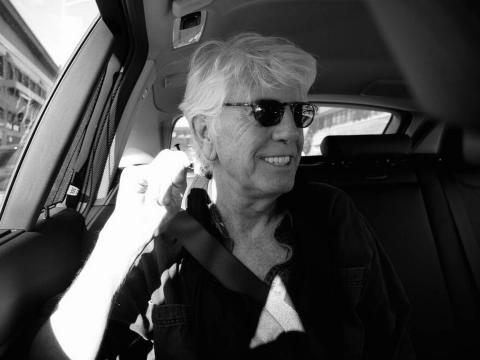Graham Nash still out to change the world with his songs

by Walter Tunis - Contributing Music Critic - Kentucky.com
In the chorus to one of his most acclaimed songs, Graham Nash designs the chorus as an affirmation, a chant against a social and political climate ripe with unrest.
The tune was “Chicago.” The year was 1971, although the tune was written in the aftermath of conflict that arose out of the Democratic National Convention three years earlier. The chorus was almost child-like in its simplicity: “We can change the world.”
Now, at age 75, Nash stands by the credo. Even though the world — his own as well as the one that surrounds him — has undeniably shifted, he stills believes in the power of a singular voice.
“Let me give you an example,” Nash said. “Do you know who Frank Wills is? He was a guard at the Watergate hotel. One night he was sitting there at his desk with a little nine-inch black and white television showing a basketball game. He went on his rounds and saw that there was tape keeping a door open. Now, he’s faced with a decision. ‘Do I check it out or do I go back to my game and make believe everything’s fine?’ He made the decision to check it out. I mean, that brought down the president of the United States. You can absolutely change the world, even if it’s only your world.”
The changes in Nash’s world have been considerable in recent years. In his personal life, the two-time Rock and Roll Hall of Fame inductee divorced his wife of 38 years, moved to New York and formed a new relationship with photographer Amy Grantham. On the professional front, the heralded folk-rock trio of Crosby, Stills & Nash, after an on-again/off-again run of over 45 years, crashed to the ground following a dispute with longtime partner David Crosby. Those events and more informed Nash’s first solo album in 14 years, “This Path Tonight.”
“I make music that comes from my heart,” Nash said. “I came to New York and fell in love with a beautiful photographer. Actually, the very first picture that Amy ever took of me became the album cover.”
Touring continuously since the record’s release in April of 2016, Nash has been performing in a duo setting with guitarist Shane Fontayne, whose extensive credits include tenures with Bruce Springsteen, Sting and Lone Justice. While the resulting shows have understandably emphasized songs from “This Path Tonight,” the repertoire reaches back to his pre-CSN tenure with The Hollies. In a career known for songs like “Our House,” “Teach Your Children” and “Cathedral,” is it difficult to get an audience to give attention to Nash’s newer music?
“I’m finding the people coming to see us are very cognizant of who I am,” Nash said. “I want them to enjoy music from when I was first writing music. The last tour I did started with ‘Bus Stop.’ This tour, I’m starting with ‘On a Carousel’ (the tunes were hits for The Hollies in 1966 and 1967, respectively). People are loving it. Those songs, they’re not particularly brain scratchers in terms of message, but they’re fun pop songs that make you feel good because you bring in all this memory of your youth into play. Not only do audiences understand that I sang in The Hollies and I made pop records for years before I met David and Stephen (Stills), they are also responding to this new stuff brilliantly. I couldn’t be happier.”
Forming Crosby, Stills & Nash involved sacrifice, though. He left everything — his home, his marriage, his band and nearly all his belongings — in his native England to move to Southern California to begin the group.
“Let’s just think about what I did. I left my incredibly popular band that, when I was with them, had at least 15 or 16 Top 20 hits. I left my bank account. I left my equipment. I left my first wife, although we were going to get divorced anyway. Hearing me and David and Stephen sing … that was it for me. That’s how powerful that sound was. That’s how powerful three voices sounding like one voice was. It brought me to America. It made me give up my entire life.”
Nash didn’t shy away from discussing his current rift with Crosby, which stems from disparaging remarks the latter made about Neil Young, CSN’s frequent fourth member, and his relationship with actress Daryl Hannah after divorcing his longtime wife — a situation that largely mirrored events in Nash’s life. Does the quarrel mean CSN is a dead proposition as a performance unit?
“At the moment now, yes,” Nash said. “David was very, very unkind. You may not agree with what your friends do, but you can kind of keep that to yourself. You don’t go on national radio and talk about Neil like that. That’s insane. And let me tell you, Neil was very upset because this came at a very fragile point. I completely understand because I just went through the same thing. For one of his (Young’s) friends to say that publicly was powerfully cruel.”
With such a championed artistic history to his credit, Nash is not standing still. His mission remains the same as it was in the ’60s: to change the world one song at a time.
“I’m on the road right now, writing every day for another record,” he said. “What’s in my future? More love. More peace. So yeah, I’m still alive.”